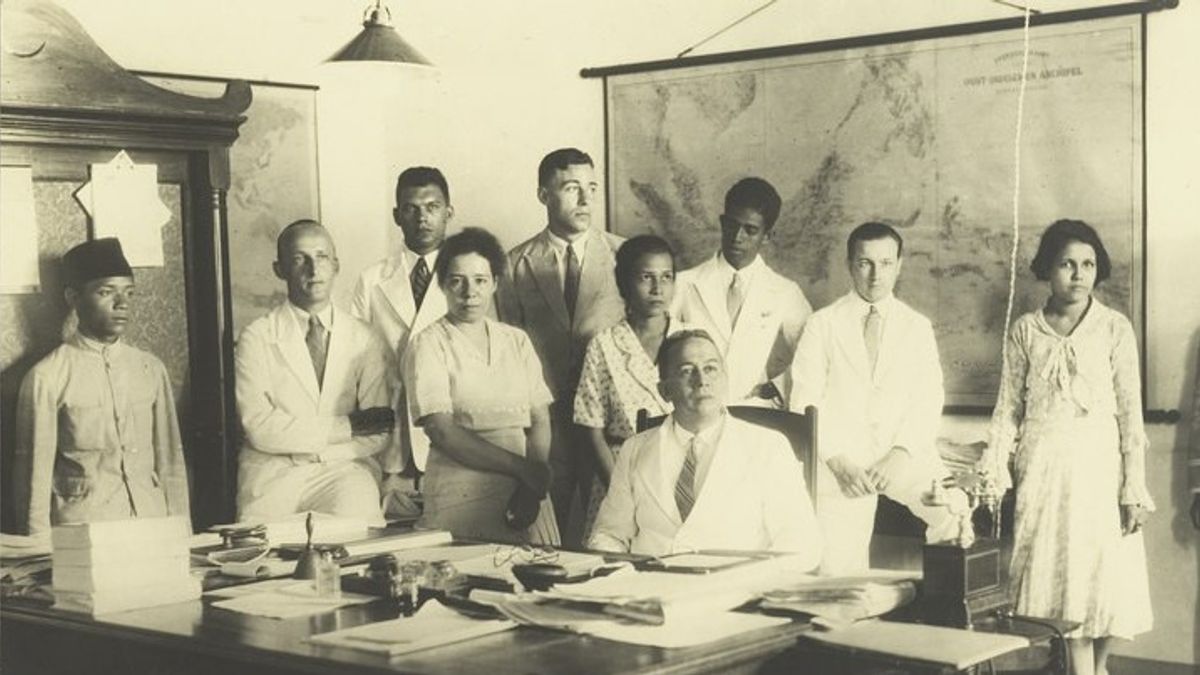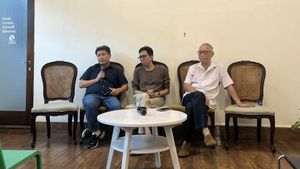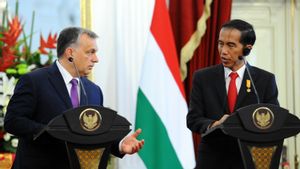JAKARTA - The emergence of the modern state of the Dutch East Indies brought a breath of fresh air. Traces of the bureaucracy of the VOC trading airline era which was once corrupt and traditional began to be cut down by the colonial government. The Netherlands involved the natives as government officials, Binnenlandsche Bestuur (BB), a policy that became the forerunner of civil servants (PNS). BB is a dream job for many people because they get privileges, from big salaries to social status.
The bankruptcy of the VOC had a big contribution to the existence of Dutch colonialism in the archipelago. Colonial land was then handed over to the Kingdom of the Netherlands which happened to be under French control. Napoleon Bonaparte then ordered his younger brother, Louis (Lodewijk) Napoleon who became King of the Netherlands to immediately send Herman Willem Daendels to Java.
The big decision was taken because the man who is often nicknamed “Mas Galak” had a great track record during the French Revolution. Daendels had led the Batavian legions well. Deandels was then appointed Governor General of the Dutch East Indies. His reign was brief -- from 1808 to 1811 -- but he made a lasting impression.
Daendels became the savior of the colony from the depravity of the traditional VOC-style bureaucracy. He also moves quickly to prevent and correct all corrupt actions of the state apparatus. In accordance with what King Louis ordered, namely to fix the administrative system in the Dutch East Indies. Therefore, in Daendels' hands, the Dutch East Indies became a country with a modern bureaucracy.
“One of the actions taken by the new governor-general is a total administrative reform. Until the time of Daendels, all of the Dutch territories east of Cirebon formed one province, the province of the East Coast of the Northeast of Java. The governor of the province, because of the various benefits associated with his position, enjoys an annual income of 100 thousand guilders, while if we take Daendels' words, the government's income from the region is practically zero."

“By a decree of August 18, 1808, the province was divided into five prefectures and 38 districts. All officials receive military equipment and adequate salaries. Gifts of bribes from the regents of Java, special benefits, all this abuse must be stopped,” said Bernard HM Vlekke in the book Nusantara (1961).
A series of "controversial" actions were taken by Daendels to change the face of the bureaucracy in the Dutch East Indies. Daenlels also initiated the move to give a place to Bumiputra officials to be part of the BB.
The presence of Bumiputra officials also broke the chain of domination of the Javanese nobility. Daendels' actions made the Javanese nobility lose a lot of their income and prestige. Moreover, it is the privilege of nobles to act freely against their subjects. Even though his policy was widely opposed, Daendels didn't care.
Daendels continued his ambition to centralize power. He then perpetuated three systems of power: Europeesch Bestuur, Inlandsch Bestuur, and Vreemde Oosterlingen. The three systems are in place to be controlled under one roof, Binnenlandsche Bestuur (BB).
“Europeesch Bestuur is the highest government in the Dutch East Indies. Structural positions that exist there ranging from governor general, governor, resident, and the lowest assistant resident. All white people. While Inlandsch Bestuur is the executor of government for the bumiputra people, starting from the regent as the highest official, the patih as deputy regent, wedana, assistant wedana, to the lurah as the lowest government structure.”
“Vreemde Oosterlingen is a special government for the people of the Foreign East, especially Chinese and Arabs. In certain areas, where there is a large enough number of Foreign Easterners, Vreemde Oosterlingen was formed. The implementing officials ranged from major, captain, to lieutenant, depending on the number of Foreign Easterners in the area. Therefore, it is not surprising that at that time there were Chinese captains, Arab captains, Chinese majors, or Arab lieutenants,” wrote Ramadhan KH in the book Long Journey of the Children of the Earth (2007).
Special colonial civil servants
The appointment of Bumiputra officials or colonial civil servants was none other than Daendels' foresight in seeing vacant posts. Daendels understands that the duties of European officials cannot be maximized because they are few in number. So that empty posts do not become fields of corruption for European officials like during the VOC era. His job was to be the mouthpiece between the colonial government and the natives.
This trend was followed by Daendels and his successors. In fact, to attract competent natives, the colonial government established schools specifically to shape the mentality of colonial civil servants. Especially for those of the priyayi group. The establishment of the Opleiding School Voor Inlandsche Ambtenaren (OSVIA), for example. OSVIA was a school for prospective Bumiputra employees during the Dutch East Indies era. After graduation they were employed as colonial civil servants.
“Students from OSVIA who come from the sons of the upper class aristocracy after graduating can expect themselves to enter government offices with a good position. There they can get a big salary and get a good opportunity to increase their level, as well as a high position in society,” wrote the book History of the National Awakening of the Central Java Region (1978).
After becoming a colonial civil servant, the bumiputras would earn high salaries and have clear career paths. For example, for the position of regent alone, colonial civil servants could earn as much as 1,500-1,800 guilders. This amount is equivalent to the salary of a resident who is inhabited by a Dutch civil servant in the same area. The high salary allowed a colonial official to have more than one wife.
In the eyes of the Dutch, the option of recruiting Bumiputra civil servants was considered efficient. The improvement in salaries, education, clear division of tasks, and responsibilities made the Dutch happy. Even for the priyayi. They had the hope of living on an equal footing with the Dutch by becoming a colonial civil servant.
Therefore, the dream of the priyayi children at that time was dominated by wanting to become colonial civil servants. All that as long as they are not fanatical about religion, then their position is safe. In fact, even more special.
“Besides financial matters, what the Dutch call 'religious fanaticism' is also often a measure of promotion among pangreh praja (bumiputra officials). A priyayi who likes to drink, raises dogs, or exhibits secular attitudes (in Western terms it is called religious 'tolerance') such as not fasting, praying, etc. (Islamic religious obligations) is easier to get promoted than fanatics,” closed Historian Ong Hok Ham in the book From Problem Priayi to Nyi Blorong (2002).
*Read other information about the Dutch colonial period or read other interesting articles from Detha Arya Tifada.
Other MEMORIESThe English, Chinese, Japanese, Arabic, and French versions are automatically generated by the AI. So there may still be inaccuracies in translating, please always see Indonesian as our main language. (system supported by DigitalSiber.id)









